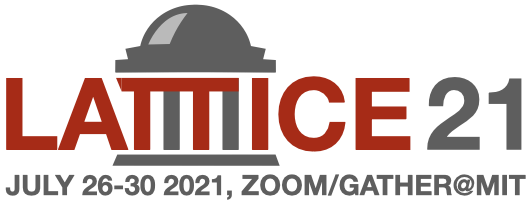Speaker
Description
The $q$-state clock model is a classical spin model that corresponds to the Ising model (when $q= 2$) and the XY model (when $q\rightarrow\infty$). The integer-$q$ clock model has been studied extensively and has been shown to have a single phase transition when $q = 2,3,4$ and two phase transitions when $q > 4$.We define an extended-$q$ clock model that reduces to the ordinary $q$-state clock model when $q$ is an integer and otherwise is a continuous interpolation of the clock model to non-integer $q$. We investigate this class of clock models in 2D using Monte Carlo (MC) and tensor renormalization group (TRG) methods, and we find that the model with non-integer $q$ has a crossover and a second-order phase transition. We also define an extended-O(2) model (with a parameter $\gamma$) that reduces to the XY model when $\gamma= 0$ and to the extended-$q$ clock model when $\gamma\rightarrow\infty$, and we begin to outline the phase diagram of this model. These models with non-integer $q$ serve as a testbed to study symmetry breaking with tensor methods where experimental parameters can be tuned continuously.
